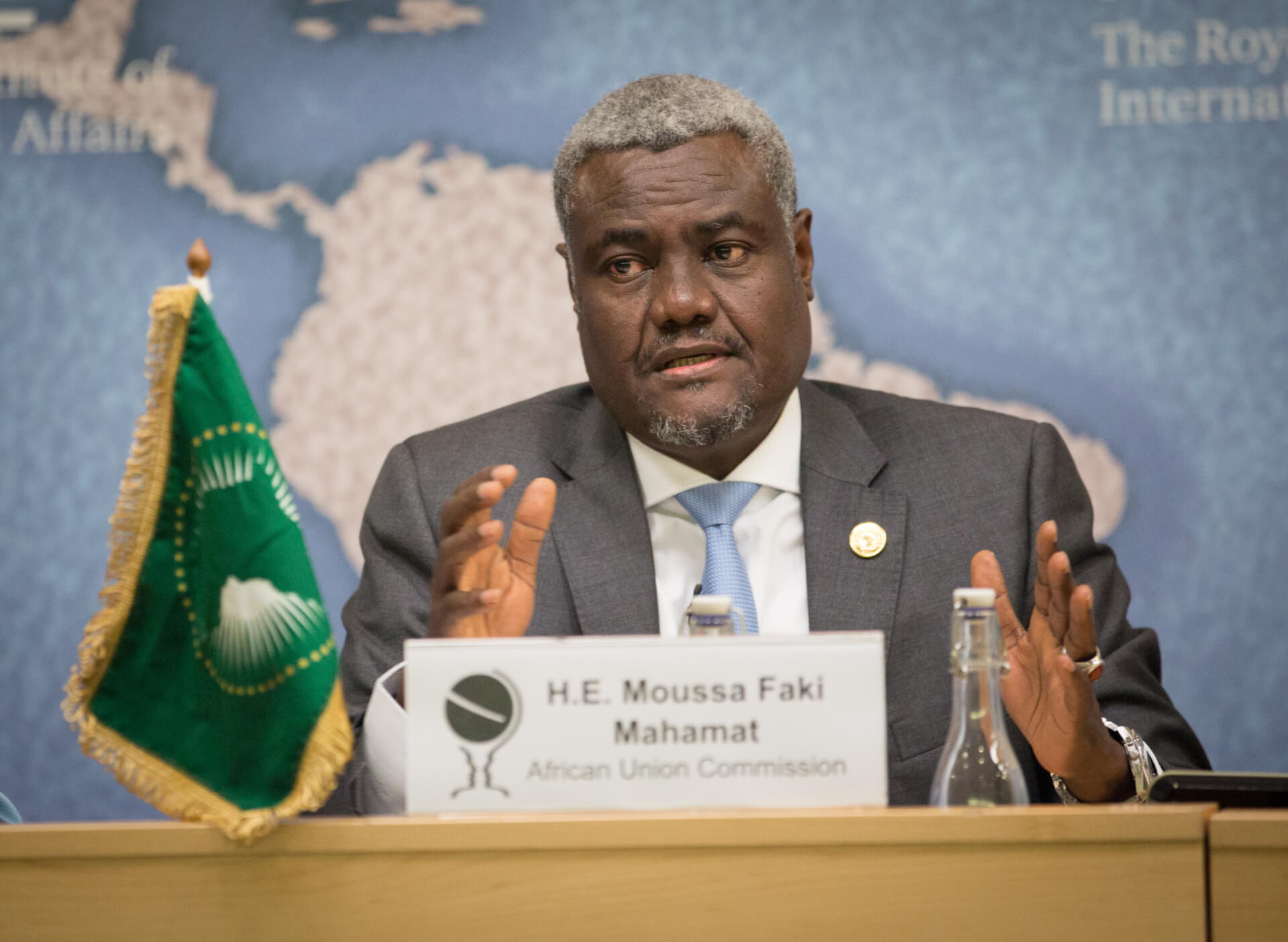The African Union Commission’s (AUC) chairperson, Moussa Faki Mahamat, made note of the “harsh socio-economic situation” in Zimbabwe and urged the government to ensure that its response to the coronavirus and economic crises is guided by a respect for human rights. Accordingly, he called upon President Emmerson Mnangagwa’s government to respect the 1981 African Charter on Human and People’s Rights, and said that infringements on the freedom of the media, assembly, association, and the right to information all constitute violations of this charter and the 2007 African Charter on Democracy, Elections, and Governance.
Simultaneously, Mahamat expressed his appreciation for South African and African Union President Cyril Ramaphosa for sending a team of special envoys to Zimbabwe to discuss de-escalation with government officials in the country. However, these efforts have been criticized by Zimbabwe’s political opposition, as the team did not meet with the Movement for Democratic Change (MDC) Alliance, a group of political parties opposed to President Mnangagwa.
It has since emerged that the Zimbabwean President barred the envoys from meeting the opposition MDC or civil society groups, and instead only allowed them to meet with the ruling Zanu-PF, despite the South African embassy in Harare sending a list of organizations and people whom the envoys wanted to meet. Mnangagwa stressed that it was a strictly ‘government-to-government initiative’. It is understood that the South African government wishes to send the envoys back to Zimbabwe to meet with other parties and individuals during a second trip to the country.
Zimbabwe is beset by spiraling corruption and an inflation rate that has touched a decade high of 800%. Likewise, according to the United Nations’ (UN) World Food Programme (WFP), close to two-thirds of the country are predicted to be at risk of hunger by the end of the year.
The remnants of oppression that guided former leader Robert Mugabe’s regime still run strong across the country, with dissenters facing a whole host of physical and psychological intimidation tactics. For example, in May, three female opposition activists—Joana Mamombe, Cecilia Chimbiri and Netsai Marova, and Member of Parliament (MP) Joanna Mamombe—were pulled over by police in Harare and then abducted, tortured, and sexually assaulted. After they were released two days later, they were charged for violating COVID-19 regulations on public gatherings, for promoting public violence, and for ‘breach of peace’. The three women were scheduled to march in a peaceful protest on May 13 that was organized by the Alliance Youth Assembly of the principal opposition party, Movement for Democratic Change. Likewise, journalist Hopewell Chin’ono and opposition leader Jacob Ngarivhume were also arrested for allegedly inciting violence.
Such events have become even more common during the ongoing pandemic. In fact, during the past few months, over 100,000 citizens have been arrested for supposedly flouting coronavirus lockdown restrictions, wherein the government is using the coronavirus as a pretext to silence political dissent.
In fact, United Nations (UN) human rights experts have expressed “grave alarm” at the “pattern of disappearances and torture aimed at suppressing dissent” in Zimbabwe.
The UN is not alone in calling for an end to human rights abuses in Zimbabwe. In March, the United States (US) imposed sanctions on Zimbabwe’s State Security minister and its ambassador to Tanzania for their role in the killing and abduction of protestors. The European Union, Australia, Canada, and New Zealand have also imposed sanctions on Zimbabwe for roughly 20 years over human rights violations and electoral fraud.
It is hoped that amid rising regional and global pressure, the Mnangagwa government will scale back its suppression tactics. However, if government spokesperson Nick Mangwana’s statements from this week are any indication, this will not happen any time soon.
Mangwana essentially excused the brutal tactics used by the government, saying, “The broken window theory indicates that if you let small crimes take place then bigger crimes will happen.” He even said that “people are faking abductions”. In fact, just last week, the president himself promised to “flush out” the “bad apples” that “weaken our systems”.
African Union Urges Zimbabwean Government to Respect Human Rights and Rule of Law
This comes amid widescale suppression of political opposition and civil society groups.
August 12, 2020

African Union Commission Chairperson Moussa Faki Mahamat SOURCE: Chatham House
